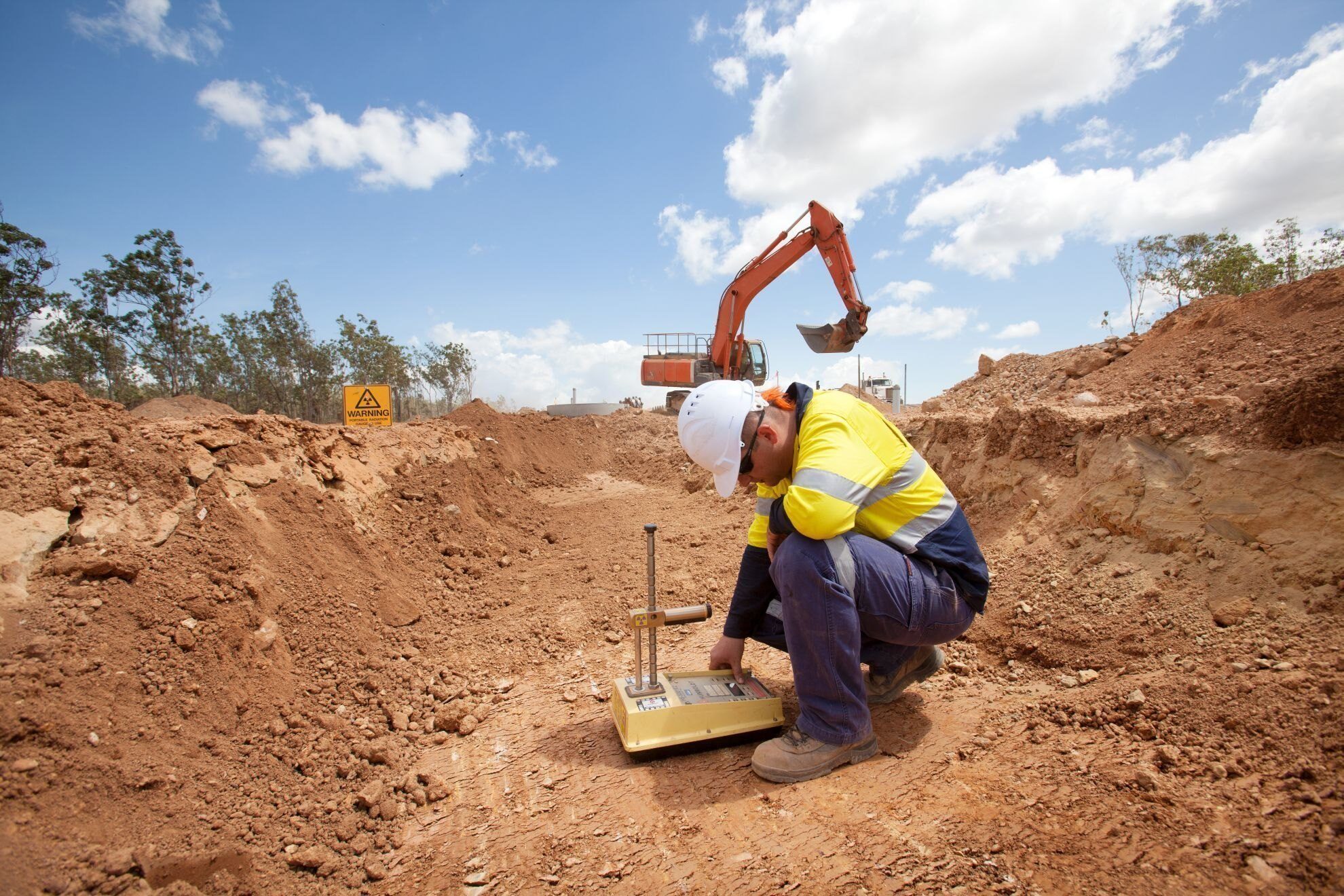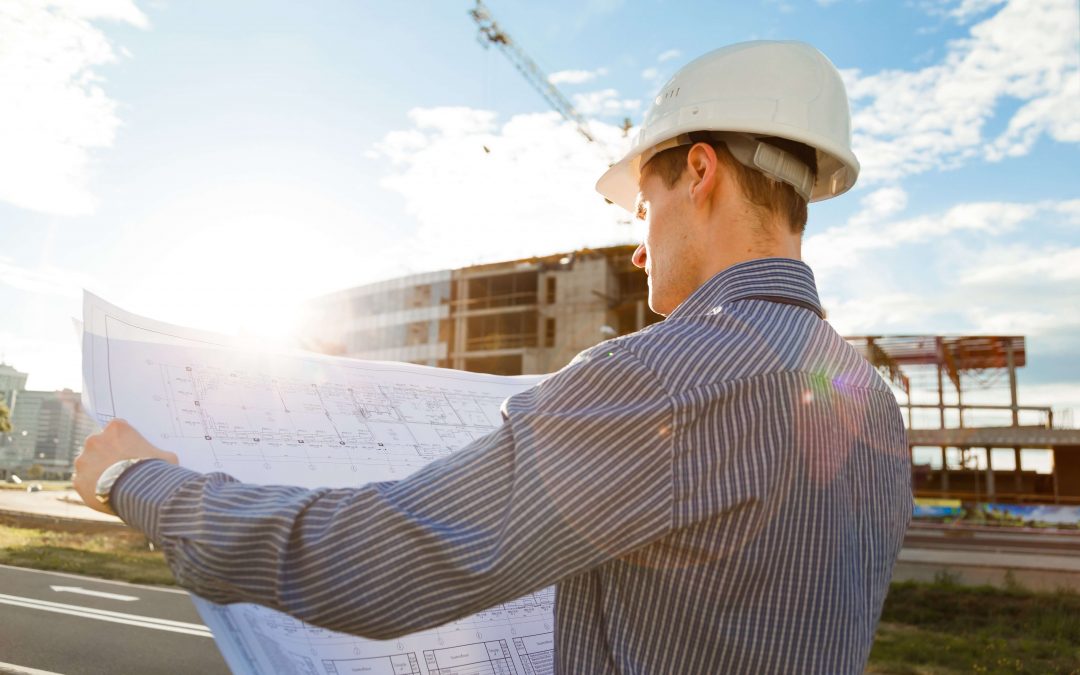Specialized Geotechnical Engineering Solutions Things To Know Before You Get This
Specialized Geotechnical Engineering Solutions Things To Know Before You Get This
Blog Article
Top Guidelines Of Specialized Geotechnical Engineering Solutions
Table of ContentsWhat Does Specialized Geotechnical Engineering Solutions Mean?The 3-Minute Rule for Specialized Geotechnical Engineering SolutionsNot known Incorrect Statements About Specialized Geotechnical Engineering Solutions Not known Incorrect Statements About Specialized Geotechnical Engineering Solutions
They conduct site investigations, gather examples, execute lab examinations, and evaluate data to evaluate the suitability of the ground for building and construction projects. Based upon their findings, geotechnical designers give referrals for foundation style, incline stability, retaining frameworks, and reduction of geotechnical threats. They collaborate with various other experts, such as engineers, structural designers, and construction teams, to make certain that geotechnical factors to consider are integrated right into the total job style and execution.
Structure Design: Geotechnical designers play an important duty in making foundations that can safely sustain the intended framework. They examine the dirt conditions and load needs to identify the proper structure kind, such as shallow structures (e.g., footings), deep structures (e.g., stacks), or specialized techniques like soil improvement. They take into consideration elements such as negotiation restrictions, birthing capacity, and soil-structure interaction to create ideal foundation styles.
The Main Principles Of Specialized Geotechnical Engineering Solutions
Here are some sorts of geotechnical designers: Structure Engineer: Foundation designers concentrate on creating and assessing foundations for structures - Specialized Geotechnical Engineering Solutions. They evaluate the soil problems, load demands, and site characteristics to identify one of the most ideal foundation type and design, such as superficial foundations, deep structures, or specialized strategies like pile structures
They carry out area testing, gather samples, and analyze the accumulated data to define the dirt residential or commercial properties, geologic formations, and groundwater problems at a website. Geotechnical Instrumentation Engineer: Geotechnical instrumentation engineers concentrate on monitoring and measuring the behavior of dirt, rock, and structures. They mount and maintain instrumentation systems that keep track of factors such as dirt settlement, groundwater degrees, slope motions, and architectural variations to analyze efficiency and give very early cautions of prospective concerns.
In the office atmosphere, geotechnical designers make use of specialized software tools to do calculations, develop designs, and examine data. Specialized Geotechnical Engineering Solutions. They prepare records, evaluation task specifications, connect with customers and staff member, and coordinate job activities. The workplace setting gives a helpful environment for research study, analysis, and cooperation with other experts associated with the project
They often visit task sites to carry out website investigations, assess geotechnical conditions, and collect information for analysis. These sees include taking a trip to various places, in some cases in remote or difficult terrains. Geotechnical designers might do dirt sampling, conduct examinations, and screen construction tasks to make sure that the geotechnical elements of the task are being carried out correctly.
Fascination About Specialized Geotechnical Engineering Solutions
Geotechnical designers also function in specialized geotechnical research laboratories. In these facilities, they perform experiments, do examinations on dirt and rock examples, and evaluate the design buildings of the products. Geotechnical lab engineers function extensively in these environments, dealing with screening equipment, operating tools, and taping information. They collaborate with various other lab staff to guarantee exact and trusted testing results.
Keeping Wall surfaces: Creating wall surfaces that keep back soil to protect against landslides and provide security on sloped surfaces. Embankments and Earthworks: Creating embankments for roadways, trains, and dams to ensure they remain steady under tension. The mining sector depends greatly on geotechnical design to make certain the safety and long life of its procedures.
With this in mind, we have actually created our program to prepare trainees for success. The Geotechnical Design program at the University of Delaware provides chances for sophisticated study and research in: Dirt and rock auto mechanics Soil-structure communication Constitutive modeling Computational geomechanics Foundation and earth frameworks design Ground improvement Incline stability and landslide stabilization Liquefaction of soils and quake design Laboratory characterization of geomaterials and soil reinforcement Ecological geotechnics Given the strong demand for see here now improvement to our nation's infrastructurethe American Culture of Civil Engineers gave the united state
Geotechnical design is a branch of civil engineering; nevertheless, it involves utilizing clinical techniques and concepts to accumulate and translate the physical residential or commercial properties of the ground. Geotechnical engineers are involved in all stages of the style of structures, from concept to construction. Their work is necessary in the design and planning process as they assess the honesty of dirt, clay, silt, sand, and rock, before construction commencing.
Our Specialized Geotechnical Engineering Solutions Statements
This is followed by a ground investigation based upon the searchings for of the workdesk research and entails test pitting and sampling to reveal any possible problems. Geotechnical engineers function within multidisciplinary groups, supported by intermediate and younger engineers as well as by CAD technicians. As an elderly geotechnical designer on a hydro plant task, jobs may consist of participating in technical evaluations (e.g., peer testimonials), tailings dam evaluations, dam security evaluations, and various other researches associated with the design and building of mine waste facilities.
While some professionals are experts only in geotechnics, others might function under titles like design rock hound or ground engineer within comparable capabilities. As a geotechnical designer, you'll need to: build and maintain partnerships with customers and other experts involved in the website, throughout each projectmaintain safety requirements on website be conscious of expense effects when you make recommendationsstudy geological maps and aerial photographs from an array of sources and from various time periodsexamine building and construction intends to see exactly how practical they are based why not look here on your understanding of the siteinvestigate risks or geological threats for the sitesearch for environmentally delicate attributes, such as garbage dump start to create accurate and interpretive ground modelsplan field investigationsdrill and evaluate samples of bedrock, soil, groundwater and added materials supervise other specialists on sitesolve technical issues as they occur, such as unanticipated frameworks at drill sitesmonitor conditions during and after building and construction to ensure frameworks are steady in the brief and lengthy termadd data gathered on website to your preliminary researchcreate geotechnical estimations, illustrations, and two or three-dimensional computer designs translating the datamake referrals regarding the proposed usage of the site.
There are great deals of chances to meet brand-new people, as you'll work with a variety of specialists at every site. The job can be difficult as go to the website you might be accountable for the safety and security of others while on website. There is likewise a high degree of financial obligation, as the referrals you make can have severe price implications.

Report this page